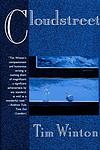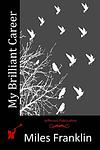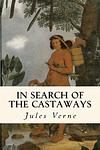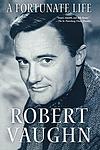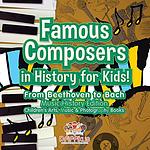The Greatest "Australia" Books of All Time
Click to learn how this list is calculated.
This list represents a comprehensive and trusted collection of the greatest books. Developed through a specialized algorithm, it brings together 284 'best of' book lists to form a definitive guide to the world's most acclaimed books. For those interested in how these books are chosen, additional details can be found on the rankings page.
Genres
The "Australia" category for books would encompass literature that is set in or explores the culture, history, and geography of Australia. This could include works of fiction, non-fiction, memoirs, and travelogues that showcase the unique characteristics of the country, such as its diverse landscapes, indigenous cultures, and colonial history. The category would appeal to readers interested in learning more about Australia and its people, as well as those seeking engaging stories set in this fascinating part of the world.
Countries
Date Range
Reading Statistics
Click the button below to see how many of these books you've read!
Download
If you're interested in downloading this list as a CSV file for use in a spreadsheet application, you can easily do so by clicking the button below. Please note that to ensure a manageable file size and faster download, the CSV will include details for only the first 500 books.
Download-
1. The Thorn Birds by Colleen McCullough
"The Thorn Birds" is a sweeping family saga that spans three generations of the Cleary family, set against the backdrop of the Australian outback. It focuses on the forbidden love between the beautiful Meggie Cleary and the family's priest, Father Ralph de Bricassart. The novel explores themes of love, religion, and ambition, as Meggie and Ralph struggle with their feelings for each other and the choices they must make.
-
2. Voss by Patrick White
Set in 19th-century Australia, the novel follows a German explorer, Voss, as he leads a doomed expedition into the outback. Parallel to this, Voss develops a romantic relationship with Laura Trevelyan, a young woman he meets before his departure. Despite their physical separation, their spiritual and emotional connection deepens as Voss's journey becomes increasingly perilous. The narrative explores themes of obsession, the human condition, and the dichotomy between civilization and wilderness.
-
3. Oscar and Lucinda by Peter Carey
"Oscar and Lucinda" is a novel that tells the story of two unconventional individuals, Oscar and Lucinda, who meet on a ship going to Australia in the mid-19th century. Oscar, a young English clergyman, and Lucinda, a teenage Australian heiress, bond over their shared love of gambling. Their mutual obsession leads to a high-stakes wager that will have lasting consequences for both of them. The novel explores themes of love, faith, and obsession against the backdrop of Victorian-era England and Australia.
-
4. The Female Eunuch by Germaine Greer
This book is a seminal feminist text that explores the oppression of women in society. It critiques the traditional roles and expectations of women in the mid-20th century, arguing that societal norms and conventions force women into a secondary, submissive role, effectively castrating them. The book encourages women to reject these norms and to embrace their own sexual liberation, arguing for the need for a revolution in the way women perceive themselves and their place in society.
-
5. A Town Like Alice by Nevil Shute
"A Town Like Alice" is a novel about a young Englishwoman, who is captured by Japanese forces during World War II and forced to march with other women and children across Malaya. During her ordeal, she meets an Australian prisoner of war, whom she later seeks out in Australia after the war. With the help of an unexpected inheritance, she uses her entrepreneurial spirit to transform a desolate Australian town into a thriving community, similar to a quaint English village she once knew, hence creating a 'town like Alice'.
-
6. The Transit of Venus by Shirley Hazzard
The novel follows the lives of two orphaned Australian sisters, Caroline and Grace Bell, who move to England in the post-World War II era. The story revolves around their relationships, particularly Caroline's complex and often tragic love life. The narrative is filled with themes of love, fate, time, and the intricate complexities of human relationships, all set against the backdrop of significant historical events.
-
7. True History of the Kelly Gang by Peter Carey
This historical novel is a fictionalized account of the life of Australian outlaw Ned Kelly, told in the form of a journal written to his daughter. The narrative explores Kelly's life from childhood, his family's struggles with poverty and the law, his involvement in horse thievery, and his eventual formation of the Kelly Gang. The story culminates with the gang's infamous standoff with the police at Glenrowan, providing a humanizing perspective on a figure often portrayed as a ruthless criminal.
-
8. The Emigrants by Winfried Georg Sebald
"The Emigrants" is a novel that explores the experiences and memories of four different emigrants, each with a unique and complex history. The narrative primarily focuses on the psychological impact of displacement and the haunting nature of the past. The author delves deep into their lives, revealing their struggles with identity, loss, and the persistent influence of their roots. The narrative is interwoven with historical events, photographs, and other documents, creating a rich tapestry that blurs the line between fact and fiction.
-
9. The Voyage of the Beagle by Charles Darwin
This book is a vivid and exciting travel memoir as well as a detailed scientific field journal covering biology, geology, and anthropology that demonstrates the author’s keen powers of observation, written at a time when Western Europeans were still discovering and exploring much of the rest of the world. The author's five-year journey took him from the coasts of South America, Australia, and Africa to the South Pacific islands, during which he collected and documented the natural history of these areas. The voyage and the specimens he brought back would later form the basis for his famous theory of evolution.
-
10. The Fortunes Of Richard Mahony by Henry Handel Richardson
"The Fortunes of Richard Mahony" is a trilogy that chronicles the life of an Irish-born man who emigrates to Australia during the gold rush of the 1850s. The narrative follows his journey, detailing his struggles with mental health, the challenges of marriage, and the difficulties of raising a family in a foreign land. The story provides a deep insight into the complexities of human nature, the societal norms of the time, and the challenges faced by immigrants.
-
11. Cloudstreet by Tim Winton
"Cloudstreet" is a sweeping family saga set in post-World War II Australia, following two families, the Pickles and the Lambs, who come to live together in a large, ramshackle house on Cloud Street over two decades. The story explores their struggles, triumphs, and the ways they are haunted and blessed by a mysterious spiritual presence. The novel is a celebration of endurance, unity, and the many forms of love, set against the backdrop of a changing Australia.
-
12. My Brilliant Career by Miles Franklin
The book follows the story of a headstrong and ambitious young woman named Sybylla, who dreams of escaping her rural life and becoming a writer. Set in late 19th century Australia, Sybylla faces societal expectations and struggles with her own desires for independence and self-expression. As she navigates through love, family, and societal pressures, Sybylla's journey becomes a reflection of the challenges faced by women in a patriarchal society, ultimately questioning the sacrifices one must make to pursue their dreams.
-
13. The Tree of Man by Patrick White
This novel tells the story of Stan Parker, an ordinary and hardworking man living in the Australian outback. The narrative chronicles his life, including his marriage to Amy, the birth of their two children, and the various struggles they face such as financial hardship, natural disasters, and the challenges of rural life. The book provides a deep and introspective look into the human condition, exploring themes of love, death, faith, and the search for meaning.
-
14. The Getting Of Wisdom by Henry Handel Richardson
The novel is a coming-of-age story set in late 19th-century Australia, following the experiences of Laura Rambotham, a spirited and intelligent country girl sent to a prestigious Melbourne boarding school. Struggling with the rigid social hierarchies and the expectations placed upon her, Laura faces numerous challenges and humiliations, but she remains determined to find her place in the world. Through her journey, the book explores themes of education, social class, friendship, and the quest for personal identity, ultimately illustrating the complexities and trials of growing up and the bittersweet acquisition of wisdom.
-
15. Remembering Babylon by David Malouf
The novel explores the life of a young man who, after being shipwrecked, is raised by Aboriginals in 19th century Australia. After sixteen years, he attempts to reintegrate into European society, but is met with suspicion and hostility due to his adopted culture and lifestyle. The book delves into themes of identity, belonging, and the clash between Aboriginal and European cultures.
-
16. The Sixth Extinction: An Unnatural History by Elizabeth Kolbert
The book explores the concept of the sixth extinction, suggesting that we are currently in the midst of it due to human activity. By examining previous mass extinctions and the current rapid loss of species, the author argues that humans are causing a mass extinction event through climate change, habitat destruction, and spreading of non-native species. The book offers a sobering look at the impact of human behavior on the natural world, emphasizing the urgency of addressing these environmental issues.
-
17. A Fringe Of Leaves by Patrick White
Set in the early 19th century, the novel follows the journey of an Englishwoman who survives a shipwreck off the coast of Australia. Stranded on the unfamiliar continent, she is captured by Aboriginal people and experiences a dramatic cultural clash. As she adapts to the indigenous way of life, she undergoes a profound personal transformation, shedding the constraints of her genteel upbringing. Her struggle for survival and the eventual attempt to return to European society challenge her identity and perceptions of civilization, nature, and self, leading to a deep introspection about her place in the world.
-
18. The Road from Coorain by Jill Ker Conway
"The Road from Coorain" is a memoir that chronicles the author's journey from her childhood on a remote sheep station in Australia, through her adolescence in war-ravaged Sydney, and finally, to her departure for America. The narrative explores themes of self-discovery, gender roles, and the power of education while providing a vivid portrayal of life in the Australian outback. The memoir also delves into the author's complex relationship with her mother and the impact of her father's death on their family.
-
19. In Search Of The Castaways by Jules Verne
This adventure novel follows the thrilling journey of Captain Grant's children, who embark on a global quest to find their missing father with the help of a detailed but cryptic message found in a bottle. Accompanied by the generous Lord Glenarvan and his crew aboard the Duncan, they navigate through South America, Australia, and New Zealand, facing natural disasters, encountering exotic locales, and overcoming formidable obstacles. Throughout their perilous expedition, the group demonstrates resilience, ingenuity, and unwavering hope, showcasing the human spirit's capacity to endure in the face of uncertainty.
-
20. A Fortunate Life by A.B. Facey
"A Fortunate Life" is a memoir that chronicles the extraordinary life of a man who overcame immense hardships and adversity to find happiness and contentment. From his humble beginnings in rural Australia to his experiences as a soldier in World War I, the author shares his remarkable journey filled with poverty, loss, and resilience. Despite facing numerous challenges, he remains optimistic and grateful for the opportunities life has presented him, ultimately proving that a fortunate life is not defined by material wealth, but by the strength of the human spirit.
-
21. Tirra Lirra By The River by Jessica Anderson
The novel revolves around the introspective journey of Nora Porteous, a woman who, after years of living abroad, returns to her childhood home in Queensland, Australia. As she reflects on her past, Nora grapples with the constraints of her conservative upbringing, her stifling marriage, and her pursuit of personal freedom and artistic expression. The narrative weaves through her memories, exploring themes of self-discovery, the role of women in society, and the search for identity. Through Nora's eyes, the reader experiences the poignant realization that life may not always align with youthful dreams, and that understanding and reconciling one's past is essential for moving forward.
-
22. Sapiens: A Brief History of Humankind by Yuval Noah Harari
This book provides a comprehensive exploration of the history of the human species, tracing back from the earliest forms of Homo Sapiens to the modern day. It delves into evolutionary biology, the development of cultures and societies, and the rise of major ideologies and technologies. The book also discusses the future of the species, posing thought-provoking questions about our roles and responsibilities in a rapidly changing world.
-
23. The Living and the Dead by Patrick White
"The Living and the Dead" is a novel that explores the lives and relationships of the Standish family living in London. The story delves into the complexities of the human condition, as it portrays the characters' struggles with their identities, societal expectations, and the inherent loneliness of existence. The narrative is characterized by its rich, introspective, and often satirical examination of the upper-middle-class life, the disillusionment of youth, and the search for meaning.
-
24. The Commandant by Jessica Anderson
"The Commandant" is a historical novel that explores the life of Frances Forbes, the wife of Commandant Patrick Logan, who was a penal colony superintendent in Australia during the 19th century. The story, narrated by Frances, provides a detailed account of their life in the colony, including the harsh conditions, the social hierarchy, and the relationships between the convicts, soldiers, and officers. The narrative also delves into Frances' personal life, her loneliness, her relationship with her husband, and her struggle to maintain her sanity amidst the harsh and isolated environment.
-
25. The Children's Bach by Helen Garner
"The Children's Bach" is a captivating novel that explores the complexities of family dynamics and the pursuit of happiness. Set in Melbourne, the story follows a group of interconnected characters as they navigate their relationships, dreams, and disappointments. Through beautiful prose and keen observations, the author delves into themes of love, loss, and the search for meaning in everyday life, creating a poignant and thought-provoking narrative.
Reading Statistics
Click the button below to see how many of these books you've read!
Download
If you're interested in downloading this list as a CSV file for use in a spreadsheet application, you can easily do so by clicking the button below. Please note that to ensure a manageable file size and faster download, the CSV will include details for only the first 500 books.
Download









